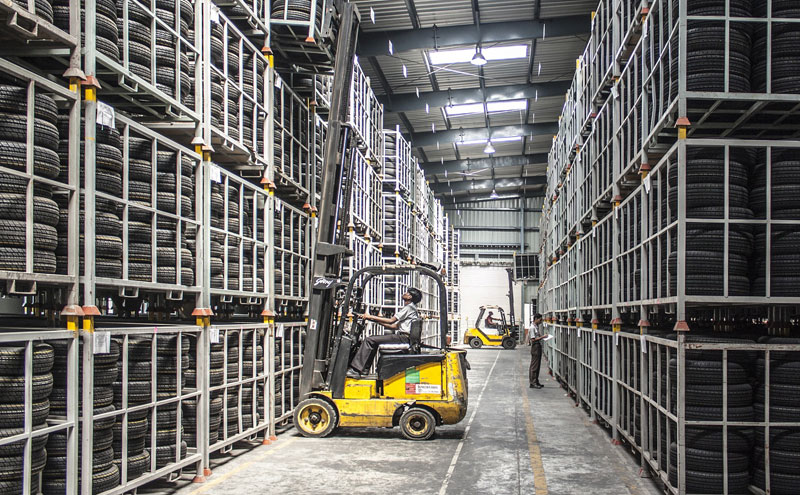You can expect an average forklift weight to be about 9,000 pounds (4,082 kg). This is about 3 times the weight of an average car. The majority of the weight resides in the rear for the counterweight, which allows for heavy items to be moved in the forks.
Generally the heavier a forklift is, the more weight it can handle. Depending if the forklift is electric or gas powered, there may be a slight difference in the total weight.
Common uses to know forklift weight if you need to:
- Move it with a truck, rail, or ship
- Lift it with a crane
- Load it into a ship
- Deliver it on a flatbed truck
- Operate it on the 2nd or 3rd floor of a building
- Design a warehouse layout
7 Example Forklift Weights
The following chart features example forklift weights of specific models ranging from the light to heavy. Other larger models can even weigh over 10,000 pounds. Additional details can be found on the manufacturer's websites. Here's the forklift weight chart:
Forklift Model | Average Weight |
|---|---|
Crown 4520-30 | 5,974 pounds (2,709 kg) |
Komatsu FG18HT-20 | 6,340 pounds (2,826 kg) |
Hyster H40FT | 7,654 pounds (3,472 kg) |
Toyota 8FGCU25 | 8,000 pounds (3,628 kg) |
CAT C5000 | 8,110 pounds (3,678 kg) |
Clark CMP25 | 8,254 pounds (3,744 kg) |
Yale GLC050 | 9,016 pounds (4,089 kg) |
Load Capacity vs Gross Vehicle Weight Rating
When going through the manufacturer details, it's important to take a careful look at the rating. This way, you make proper assessments based on weights.
Load capacity or lift capacity refers to how much weight the forklift can safely lift.
Gross vehicle weight rating (GVWR) refers to the actual total weight of the vehicle and all of its attachments.
How To Estimate Forklift Weight
Sometimes you may need to make an estimation of the forklift's weight without access to all the official information. In this scenario, all you need to know is the load capacity of the forklift.
Take the forklift's load capacity and multiply it by 2.
The actual forklift weight should be close to that figure, based on the physics of a forklift counterweight. Of course, this is a rough standard and manufacturer information with the forklift's data tag should always be prioritized.
Why Do Forklifts Weigh So Much?
The main reason a forklift is so heavy is because it includes an internal counterweight. This is necessary in order to keep a forklift from tipping over when in use. It helps to maintain forklift balance, and a stable center of gravity.
The following YouTube video shows how center of gravity is affected by the weight of a forklift, and it's load:
To Conclude
Forklifts are quite heavy when it comes to industrial equipment. In some cases they can weigh up to 3 times the weight of an average car. That's why it's so important to follow strict forklift safety protocols while in operation.

